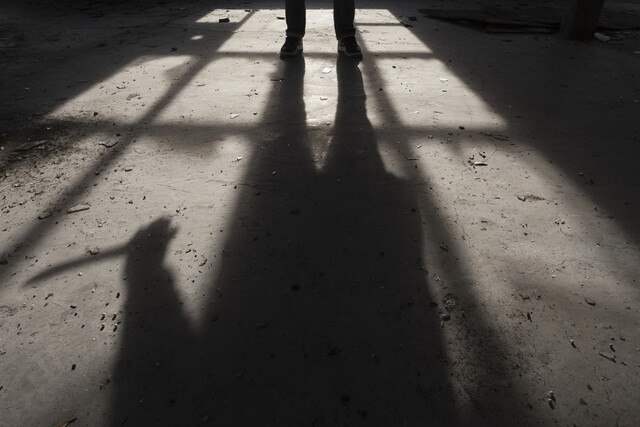Death:
All deaths have a cause, manner, and mechanism.
Cause of Death:
� This is the "what" of death, an illness or injury that is not compatible with continued life.
� Disease or event or injury that led to death
� What process led to death
� Proximate � The initial event that leads to death.
� Immediate � The last event prior to the death.
Mechanism of Death:
� How the cause of death is incompatible with life
� Biochemical or physiological changes that led to the individual dying.
Manner of Death: Why the cause of death came to be:
� Natural - Arteriosclerotic, hypertensive, ruptured cerebral aneurysm, pulmonary, central nervous system, respiratory.
� Accidental � Due to the unintended actions of an individual's actions or from the unintentional actions of another.
� Suicide � Deliberate actions to one's self.
� Homicide � Due to the deliberate actions of another.
� Undetermined
CAUSE OF DEATH:
The cause of death is the injury or disease that begins the process of death, which can be separated into the proximate or immediate cause of death. The proximate cause is what initiates death, the initial event. The immediate cause is what occurs immediately prior to death. The length of time between the proximate and immediate cause of death makes no difference in the final diagnosis; even though the time can range from minutes, to days, to years. As long as the investigation between the history of the two events proves the train of events is unbroken.
MECHANISM OF DEATH:
The mechanism of death covers the biochemical or physiologic abnormality that leads to death. Common natural events include arrhythmias, shock, or bleeding to death. The mechanism of death is not the cause of death, and cannot be included alone on the death certificate. For example, a gunshot wound can result in brain injuries such as swelling and edema and is the mechanism of death, BUT the cause of death is gunshot wound to the head.
MANNER OF DEATH:
The manner of death include the circumstances that surround the death. There are five manners of death: 1) Homicide, 2) Suicide, 3) Accidental, 4) Natural, and 5) Undetermined.
Homicide is where one individual kills another, whether or not death was intended. The courts will determine intent and if there will be criminal charges filed. For example, a man holds up a victim who suffers a heart attack due to the extreme stress of having a gun pointed at him. The assailant is guilty of homicide because the heart attack kills his victim.
Interview with a Homicide Detective:
The following interview is with former NYC homicide detective, Bob Wilson.
Me: If someone dies at home, what happens, and why?
BW: The police have to be called, and they are the first to arrive on the scene. Experienced officers can look at a corpse and usually know right away what kind of homicide it is.
Me: What if it is a natural death?
BW: That's how we classify them�they're either Homicide � natural, Homicide � suicide, or Homicide � criminal intent. It's not up to us to decide, but anything that looks suspicious we investigate.
Me: What if it looks like a natural death?
BW: If it's an older person, say over 60, with no obvious signs of trauma, there's probably no huge rush. We get in touch with the doctor either that day or the next, there's usually not any huge investigation. It's probably a natural death. But, all deaths have to have a cause and a doctor MUST be willing to sign the death certificate. In NY, if the victim has seen his/her family doc. within the last 24 hours, and has been under that doc's care, then that doc is able to sign the death certificate. If the patient hasn't seen a doc in a long time or if the doc is unwilling to sign the death certificate, then the body is taken to the morgue and an autopsy is performed in order to determine the cause of death. There MUST be a cause of death on the death certificate.
Me: Did you always believe the doctor?
BW: Well, when the victim was Jewish, you know, they have to be buried before sundown, so if you contacted the doctor, he'd always say that he'd seen the victim within the past 24 hours and he'd be willing to sign the death certificate. Unless there was obvious sign of homicide or suicide, we'd just go along with that.
Me: What if you suspect that it is a suicide?
BW: Suicides are considered homicides, and have to be investigated. The body is not released to the family until it is determined why that individual has taken his/her life. Medications, etc. have to be tracked down and investigated in order to determine the manner of death. We interview the neighbors, find out if there have been any unusual circumstances, or changes lately. We talk to his doctor, his pharmacist, his family, friends, anyone who can give us an idea of what his thoughts have been like, and if they've changed recently. We also have to eliminate the possibility that it is a homicide that is staged to look like a suicide. Again, the investigation has to give us the proof we're looking for. If you have a college kid who commits suicide, but no one can remember him being down or depressed, and the parents have just taken out a life insurance policy and they're having money problems�well, we have to take a pretty close look at that.
Me: Is there any difference to you if the victim is an adult or a child?
BW: A death is a death. A homicide is a homicide. With kids, it's always harder emotionally, but we have to keep a stoic face on and not show any emotions. My job is to figure out how the victim died. If it's a kid, we'd get in touch immediately with the kid's doctor to find out if they had leukemia or something that could be expected to shorten his life. Even if the doc says that the kid had leukemia, the autopsy will have to prove that. When you die before your time, you always get an autopsy. If not, that's when you begin to look at this as a homicide, reasons for murder, whether there is insurance on the kid, whether the family is having money problems, like I said before. People kill people for lots of reasons.
Me: How can you tell between a strangulation that was intentional or an accident, especially in the case of a child.
BW: The homicide detective is pretty savvy. Marks of strangulation are pretty obvious. I'll go in there and process the scene, take pictures, talk to the family and see if their story jives with the evidence. Most of the time, this is done pretty quickly. Sometimes, though, an investigation can take a couple of weeks. It takes as long as we need to get the proof and evidence to present in court if that's what we're looking at.
Me: What do you do when you have to question someone famous?
BW: They get treated just the same as anybody else. I've questioned tons of famous people, and I just treat �em all the same.
























